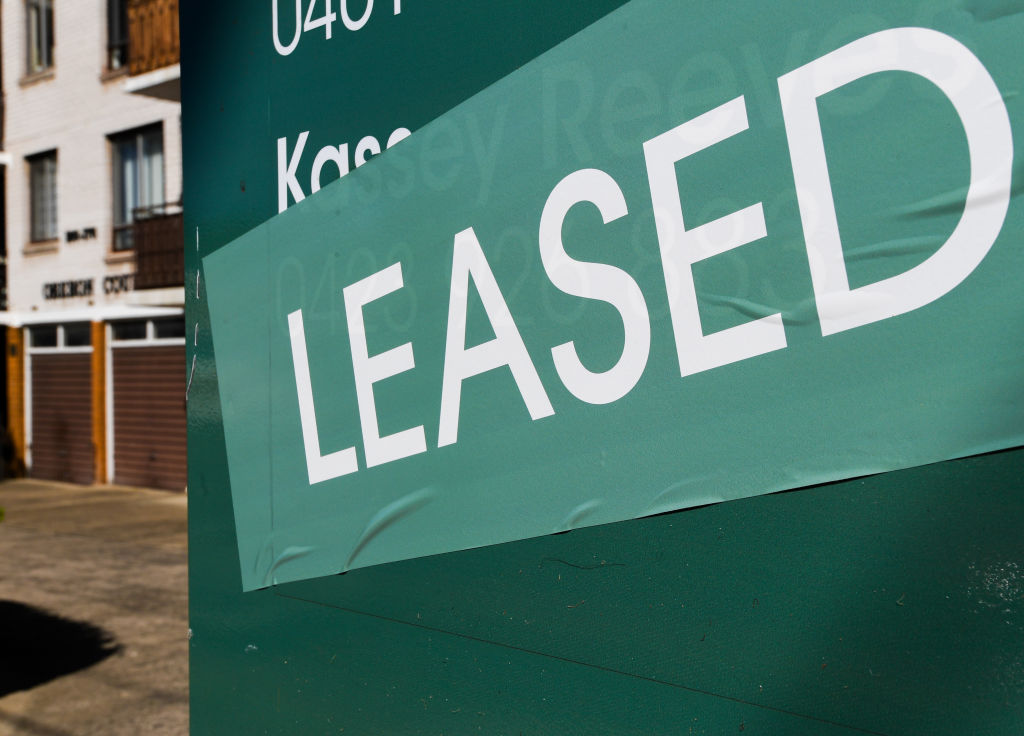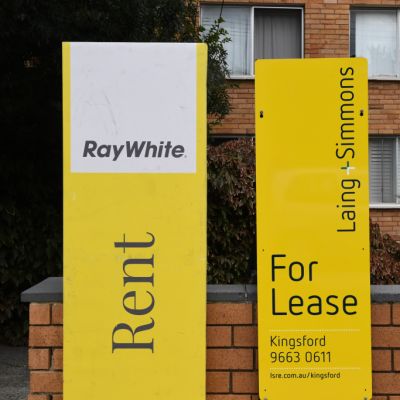New South Wales, Queensland and Victorian tenants' unions warn of long tribunal waitlist

Renters and landlords could face longer wait times to have their disputes heard once eviction moratoriums end, with a flood of cases likely once government support dries up in October, tenants’ groups have warned.
NSW, Victoria and Queensland tenants’ groups have raised concerns there will be longer waiting periods for tribunal hearings once eviction moratoriums end in October, not long after JobKeeper and mortgage holidays come to a close at the end of September.
“That’s going to be the second wave of tenancy issues,” Tenants Queensland chief executive Penny Carr said.
“There’s a cliff coming in terms of protections for tenants.”
When the pandemic was escalating in March and April, national cabinet announced a temporary increase to income support, and put a six-month stop on rental evictions, but precise tenancy regulations differed by state.
In NSW, that cliff could come as soon as next week, with an initial 60-day stop on landlords being able to apply to the New South Wales Civil and Administrative Tribunal (NCAT) ending on this week.
Under the state’s regulations updated for the COVID-19 crisis, until October, landlords who want to evict tenants must first negotiate to defer or decrease rents in a Fair Trading-run process. If negotiations fail, landlords can apply to NCAT for an eviction hearing.
“We probably are expecting to see a lot of cases come forward,” Tenants’ Union of New South Wales chief executive Leo Patterson Ross said. “Because things are being done over the phone, there may be some delays, but if there are a bunch of cases at once, the tribunal may not have the members to do it.”
About 60 per cent of tenants in NSW were in periodic agreements, and roughly 20 per cent were on fixed agreements, Mr Patterson Ross said. Those on fixed agreements were made to pay a four to six week penalty for leaving a property early – something many renters did rather than going to the tribunal to end a tenancy.
He said the 90-day no-grounds notices for out-of-contract tenancies and the 30-day notices when contracts ended (now extended by 60 days due to the pandemic) were often used to avoid going through a tribunal process, leaving many tenants feeling unwilling or unable to contest the orders.
“Tenants are just very worried about going through tribunal processes and formal processes of any sort,” Mr Patterson Ross said.
But, he said, more people who were served 90-day notices back in April could soon be attending the tribunal, as many of them might not have vacated their rentals during the pandemic.
“We know that in normal circumstances, a lot of tenants get a notice of termination from their landlord and just leave – they don’t dispute it, they don’t fight it, even if they could. And so there’s a question mark around how many people will do that now, because it’s less easy for them to move, particularly if they are now on JobSeeker,” he said.
NSW Fair Trading numbers show the residential tenancies page online has been visited 321,000 times during the pandemic, and the department received close to 5000 inquiries from landlords, tenants and agents.
Fair Trading assisted with just 165 negotiations for rent decreases or deferrals – 102 of those were resolved, while the remaining either were yet to conclude, or had parties unwilling to participate or ineligible as a COVID-impacted tenant.
“Last month we introduced additional measures, allowing impacted tenants to end their tenancy early with a reduced financial penalty by applying to the NSW Civil Administrative Tribunal,” NSW Minister for Better Regulation and Innovation Kevin Anderson said in a statement.
In Queensland and Victoria, COVID-19 pandemic-affected tenants could apply for a grant to help pay their rent, and were then also directed to negotiate with their landlord for a reduction or a deferral of payments, either privately or through the Residential Tenancies Authority (RTA) in Queensland and Consumer Affairs Victoria (CAV).
If no outcome could be reached, the case could then be brought to the tribunal in each state, and, unlike in NSW, each had the authority to order a rent reduction if appropriate.
Tenants Victoria chief executive Jennifer Beveridge said Consumer Affairs was now acting as a “front door” to the Victorian Civil and Administrative Tribunal (VCAT) and while urgent matters were being fast-tracked, the process for others was longer than usual.
“Anecdotally what we’re hearing from tenants is that they’re having to wait longer – there’s some inconsistency in whether they’re notified about the hearing or not,” Ms Beveridge said. “With any new system some confusion still sits there as people are trying to navigate what the new system looks like.”
Consumer Affairs Victoria earlier told Domain 14,150 rent variations had been registered with the authority, equating to about 2 per cent of the estimated 700,000 rental agreements in Victoria.
Only 1425 disputes had been brought to the RTA in Queensland, with 77 per cent of those resolved.
“We’ve seen some great examples of people being prepared to have some tough conversations and reach reasonable agreements, and we thank the Queensland renting community for their cooperation so far,” RTA chief executive Jennifer Smith said in a statement.
Ms Carr said it was unclear whether these resolutions, and those made without the assistance of the RTA, were for a rent reduction or a deferral – and that the latter had the potential to leave tenants in an even more financially precarious situation.
“We are hearing of people who have been pushed or cajoled into rent deferrals – but we don’t know how many are out there,” she said.
Tenants Queensland had seen a “rush of people” needing advice or assistance navigating a rental negotiation due to the COVID-19 crisis, Ms Carr said.
Ms Beveridge said Tenants Victoria had also seen an increase in people contacting them and accessing information through their online platforms for help during the pandemic.
“What we have seen on our website stats and our engagement on social media is about a 400 per cent increase for March and April,” she said.
Once JobKeeper payments and mortgage holidays ended, more cases would likely go to VCAT, she said, and it needed to be easier for tenants to access the tribunal and exercise their rights to negotiate their rents.
“There definitely is opportunity to do things differently, and now we’re in a time where we’re having a trial of that – piloting that process and then evaluating it to see how it works,” she said. “Residential tenancy is a big area for VCAT, it might not be the most interesting, but it affects a lot of people.”
Real Estate Institute of Australia president Adrian Kelly said it was too soon to tell whether there would be more demand on tribunals once JobKeeper and mortgage holidays ended.
“The sooner this is all worked through the better, rather than leaving it until September or October when government assistance dries up,” Mr Kelly said.
He said the onus was on the government, not landlords, to ensure tenants could afford to pay their rent.
“I think it’s all solvable, but it’s going to take some sort of government funding to help those tenants out who have clearly lost employment, whether that’s a continuation of JobKeeper or JobSeeker, but a lot of tenants are in the casualised workforce and they didn’t qualify for JobKeeper.”
Mr Patterson Ross said a better way for the government to have dealt with the situation would have been for them to bring rents down to an affordable level for tenants, and then “meet the gap for what the landlord needs”.
“There’s a range of ways they could do that – no-interest loans to keep the cashflow going, grants, or they could be talking to the banks about the mortgage relief looking at where they can reduce the cost for landlords to help them reduce the rents even more,” he said.
“There would have been better ways for the whole of Australia to deal with this.”
We recommend
States
Capital Cities
Capital Cities - Rentals
Popular Areas
Allhomes
More
- © 2025, CoStar Group Inc.










